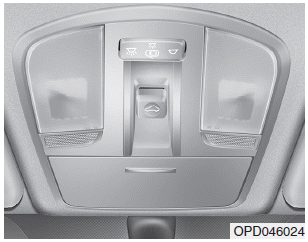Hyundai i-30: Automatic transmission / Parking
Always come to a complete stop and continue to depress the brake pedal. Move the shift lever into the P (Park) position, apply the parking brake, and place the ignition switch in the LOCK/OFF position. Take the Key with you when exiting the vehicle.
WARNING
When you stay in the vehicle with the engine running, be careful not to depress the accelerator pedal for a long period of time. The engine or exhaust system may overheat and start a fire.
The exhaust gas and the exhaust system are very hot. Keep away from the exhaust system components.
Do not stop or park over flammable materials, such as dry grass, paper or leaves. They may ignite and cause a fire.
 Shift-lock system. Shift-lock release
Shift-lock system. Shift-lock release
Shift-lock system
For your safety, the automatic transmission
has a shift-lock system
which prevents shifting the transmission
from P (Park) into R (Reverse)
unless the brake pedal is depressed...
 Good driving practices
Good driving practices
Never move the shift lever from P
(Park) or N (Neutral) to any other
position with the accelerator pedal
depressed.
Never move the shift lever into P
(Park) when the vehicle is in
motion...
Other information:
Hyundai i30 (PD) 2018-2025 Service Manual: Repair procedures
Component Replacement After Deployment • Before doing any SRS repairs, use the GDS Pro to check for DTCs. Refer to the Diagnostic Trouble Code list for repairing of the related DTCs...
Hyundai i30 (PD) 2018-2025 Service Manual: Differential Pressure Valve (DPV)
Description and operation Description Differential pressure valve (DPV) is control the pressure difference of EGR inlet and outlet. Specifications Specification [Motor] Item Specification Coil Resistance (Ω) 2...
Categories
- Manuals Home
- 3rd Generation i30 Owners Manual
- 3rd Generation i30 Service Manual
- EPB malfunction indicator
- To activate the ISG system
- Drive mode integrated control system
- New on site
- Most important about car
Panorama sunroof
If your vehicle is equipped with a sunroof, you can slide or tilt your sunroof with the sunroof control lever located on the overhead console.

The ignition switch must be in the ON position before you can open or close the sunroof.
The sunroof can be operated for approximately 30 seconds after the ignition key is removed or turned to the ACC or LOCK(or OFF) position. However, if the front door is opened, the sunroof cannot be operated even within 30 seconds.
